Strangers and Thieves

Samuel Phillips is a writer, graphic designer, photographer, songwriter, singer…
Growing up for me was definitely a beautiful thing, not because I was born with a golden spoon in my mouth, but because I was raised in a home environment of discipline and hard work. Learning, then, was deep and went beyond ramming things into your head just to pass exams or to impress your parents, teachers or friends. It was a deep and personal daily walk, to find and know myself from the inside out. Dad was a pastor, and mum a primary school teacher, so friendship with books and reading materials was just a natural thing you would make.
So, I grew up reading anything and everything my hands could find. But of the many reading materials that really had much influence on my young mind back then were stories told by older people. We had lots of such Afrikan stories back then. Those stories made some deep impressions on my young mind, even though they carried much fun with them as well. It’s from one these stories and how it relates to our present day that I am writing this article.
I cannot tell you exactly whether the book that carried this particular story can be found anywhere, even online, nor can I tell you that I will relay the tale exactly how I read it back then. But I am pretty sure I can at least provide you with a simpler narration.
The village of love
Once upon a time, as the story went, there was this little village somewhere in Afrika where the people lived in such beautiful harmony and goodwill. Every member of the community lived as brothers, sisters, mothers, fathers and all watched out and cared for each other.
However, in as much as they lived in such harmony and love amongst themselves, one thing however made them very interesting, that is, on their market day, sellers would bring their farm products and crafts to the market for sale but would not sit to watch their goods. They just brought their products to the market, placed pebbles close to what they were selling, to indicate the amount of cowrie shells they expected from each item and then they would go back home, or to the farm. Later in the evening, at the close of day, they would come back to collect the money and also whatever was not sold. This was their custom which was passed down for generations. And so they lived in peace and trust with one another.
A fox in the midst
On one particular day, each seller brought their goods and wares as usual, placed stone pebbles to indicate price and went home or to their farms.
Later in the evening, as was their custom, the returned to collect their sales for the day, but alas, something had happened. A stranger had entered their midst.
One of the sellers went to her space but found no cowrie shells and that her basket of bananas was also empty. She could not believe her eyes, nor could she understand what she was seeing. In her surprise, she went to tell her neighbor of the strange thing that had happened, but met her along the way coming to her to do the same!
In no time, there was uproar and confusion in the market, for this had never happened before. But worse still, a dirty seed of doubt and suspicion was already working its way among the people.
Just in time, a quick witted elder who was at the market, noted the evil of distrust that was already creeping in among the people. He quickly called for the council of elders. They needed to consult the oracle to find out what was happening, before things got out of hand.
The council of elders gathered in the presence of all the villagers.
The atmosphere was tensed, each villager present looking suspiciously at other villagers. The elders consulted the oracle and the declaration was that, a stranger was among them. “A stranger!” They all exclaimed. For they all knew each other so well that even a strange fly would be identified instantly. But just as they deliberated on the odd announcement, a man whom they had never seen before, casually walked into the gathering. He definitely did not look like one of them and from the look on his face, he seemed interested in whatever the gathering was about.
The chief of the elders asked him who he was. He narrated his story.
“I left my village in a far away land, beyond the rivers, walked for many months looking for a new place to settle. When I got to this village, I went first to the market to buy myself some food to eat, but on getting to the market, I found no one there. Just the goods that were meant for sale and some money. So I thought to myself that, the people of this village must either be very foolish to leave both their goods and their money with no watching them or they are probably all dead. So I took some fruits to eat, some extra food to eat later, and also went through all the shops to collect every bit of money I could find.” He ended his tale with no remorse or guilt for what he did.
The villagers where so shocked that a person could do that, and the elders where silent for a while, deliberating on what to do. After their deliberations, the chief of the elders ordered the young warriors of the village to bind hand and foot the stranger, take him far away from the village borders and throw him out with a warning for him to never return.
Once the stranger and thief among the people was removed, the villagers breathed a sigh of relief that they could trust each other just as they had done for generations.
End of story. For those who may have read the original version of this story, I realize that I may not have shared it exactly the way it was written then, but I do hope I did a good job.
No one reading this needs a degree in rocket science to figure out that this story as used by me, is about Afrika, the village of love.
Afrika the lost village of love
The womb of Afrika, as the Motherland for all of mankind, has birthed much for the world and her back has carried many weights of humiliation while doing so. Gang-raped over and over again by those who sneaked in through the broken fences that we have allowed for many decades, Afrika, as a people, now need to re-think what it means truly putting a stop to the things that undermine her.
They keep raping Afrika
According to an article written by Father Anselm Adodo, published in an earlier issue of this magazine, “As we speak, hundreds of thousands of Congolese children work themselves to death in Congolese mines where they mine cobalt, earning one dollar a day. Cobalt is used in making the lithium batteries that power your mobile phones and cameras.
The Democratic Republic of Congo is the world’s largest producer of Coltan. Coltan is essential in the production of mobile phones and tantalum capacitors that are used in almost every kind of electronic device. Approximately 80% of the world’s supply of Coltan is found in the Democratic Republic of Congo. For the world to keep enjoying mobile phone technology, it must have unhindered access to tantalum from Congo. For your information, Congo is among the world’s poorest countries.
Niger Republic and Namibia are among the world’s top producers of uranium. They are also among the world’s poorest. Niger alone supplies France with the uranium required to power up their nuclear programme and power stations – generating almost 80% of France’s electricity via an estimated 59 nuclear plants. One out of every three light bulbs that are lit in France is thanks to the uranium from Niger republic. However, in Niger, nearly 90% of the population has no access to electricity. For France to keep growing, it must have unhindered access to uranium from Niger republic.
Over 70% of the world’s cocoa is grown in Africa, which is exported. The world’s chocolate business is valued at over 120 billion dollars annually and is expected to grow up to 170 billion dollars by 2024. Yes, it is the cocoa from Africa that powers the worlds profitable chocolate business. For the world to keep enjoying chocolate and make money from it, it must have unhindered access to Africa’s cocoa. For every 100 dollars that Africa makes from the sales of cocoa, she generates at least 50,000 dollars, not for her people, but for the rest of the world.
Ghana and Ivory Coast account for almost 70% of global cocoa bean exports. In 2019 alone Ghana exported around 900,000 tons! Cocoa farmers in Ghana receive 480 cedis (86 euro) per bag, which amounts to an annual income of 500 euros for one hectare. Ghana earns some 2 billion dollars annually from exportation of cocoa, while the chocolate industry, which depends on Ghana’s cocoa beans, earns over 120 billion dollars annually. The average life expectancy for farmers in Ghana is said to be 53 years.
Ivory Coast, the world’s largest cocoa producer, a former colony until ‘Independence’ in 1960, has wrestled with civil unrest and increasing poverty rates for years. In 2015, poverty in the Ivory Coast was as high as 46.3 percent. Ivory coast is also among the world’s top exporter of raw cashew nuts. In 2018, Ivory Coast was ranked 165 out of 189 countries on the United Nations Human Development Index. The Ivory Coast continues to be the world’s largest producer of cocoa, with an estimated 2.12 million metric tons for 2020’s harvest.
When will we throw out the strangers and thieves in our midst?
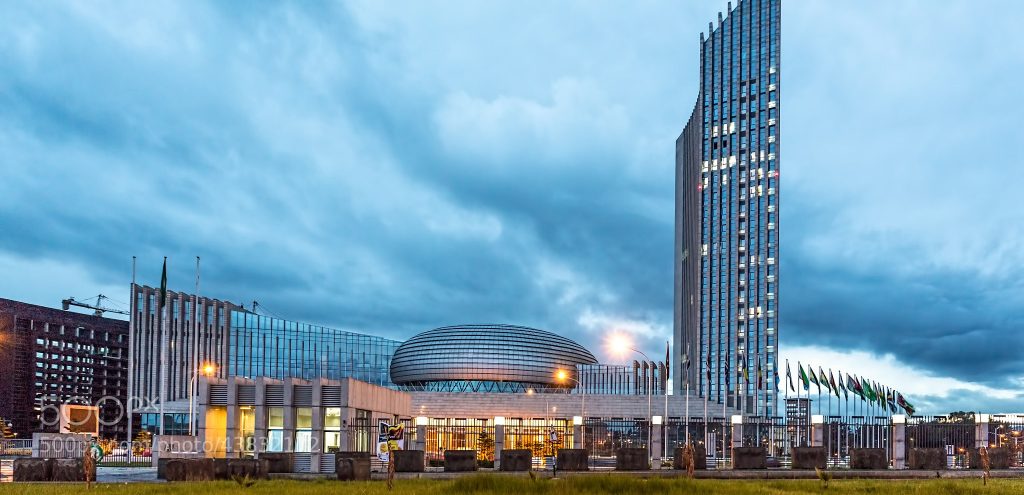
I was at the AU headquarters in Addis Ababa with my wife in late 2018. We were allowed to walk around the new facility, take photos and even ask questions. I got very upset when we were told that the brand new facility that we were walking around and admiring, was funded and built by the Chinese.
To me, that was like a huge slap on the face of Afrika all over again. Someone may ask, “What’s the big deal about China building the AU headquarters?” Well the big deal is that, the AU headquarters is not just a building. In Afrikan culture, the place where elders meet and decide the destiny of their people is not a mere place, it is the place of power and authority. It is a spiritual stronghold that represents the people, a place where elders are not afraid to speak the truth for the benefit of their communities and not the place of lies and falsehood that the AU headquarters has become.
But the question is this, how can the thieves and strangers that have raped our lands be stopped, when the very “town hall” where the elders meet was built by another set of strangers? I speak of the AU headquarters which was built by the Chinese.
Afrika is where she is today because the “elders” were too weak morally and in discernment to cast out the thieves who snuck in as strangers. They were too busy allowing the killing of a man like Thomas Sankara, who stood for something useful, because his life raises a question about possibilities in Afrika that they cannot dare to answer.
It is against common sense for Afrika to have all the resources listed in this article and more and then the Afrikan people be considered the poorest in the world. How does that even work? And then we have the very shameless leaders or elders of the Afrikan people who love to travel to those magical places outside of Afrika, which were built by the very resources stolen from Afrika, while the very Afrika the resources came out from is nothing but an eyesore. It is a shame that after sixty years of self-rule and in 2021, our people still run to the land of their oppressors for health care.
When are we going to root out the strangers and thieves in our midst. It’s hard to do, I guess, especially now that the strangers and thieves are the very ones we vote into power and whose corrupt families we have given political immunity.
What's Your Reaction?
Samuel Phillips is a writer, graphic designer, photographer, songwriter, singer and a lover of God. As an Afrikan content creator, he is passionate about creating a better image and positive narrative about Afrika and Afrikans. He is a true Afrikan who believes that the true potential of Afrika and Afrikans can manifest through God and accurate collaborations between Afrikans. Afrika is the land of kings, emperors, original wisdom, ancient civilizations, great men and women and not some road-side-aid-begging poor third world continent that the world finds joy in undermining.









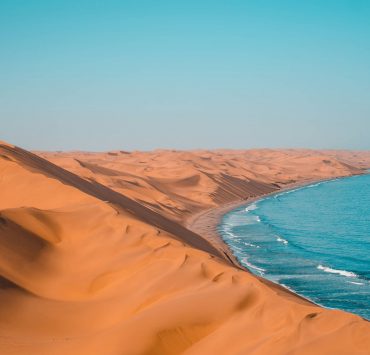
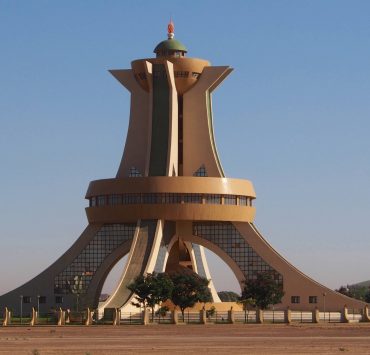
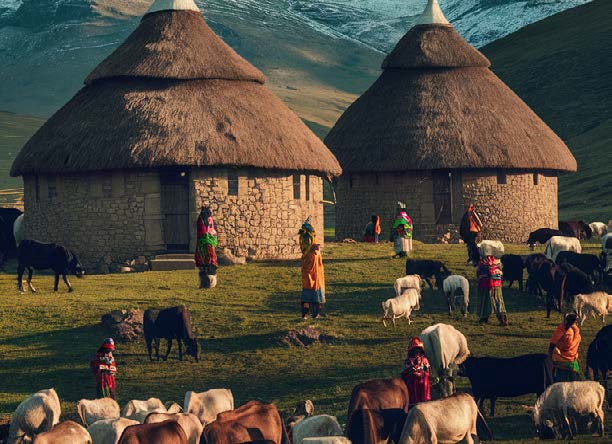

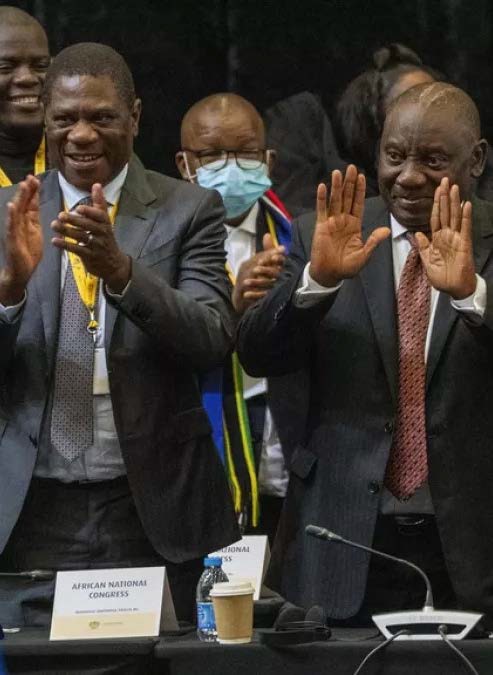

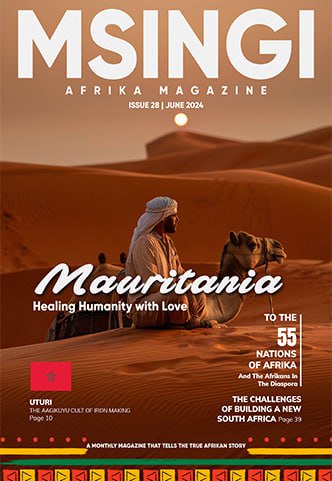
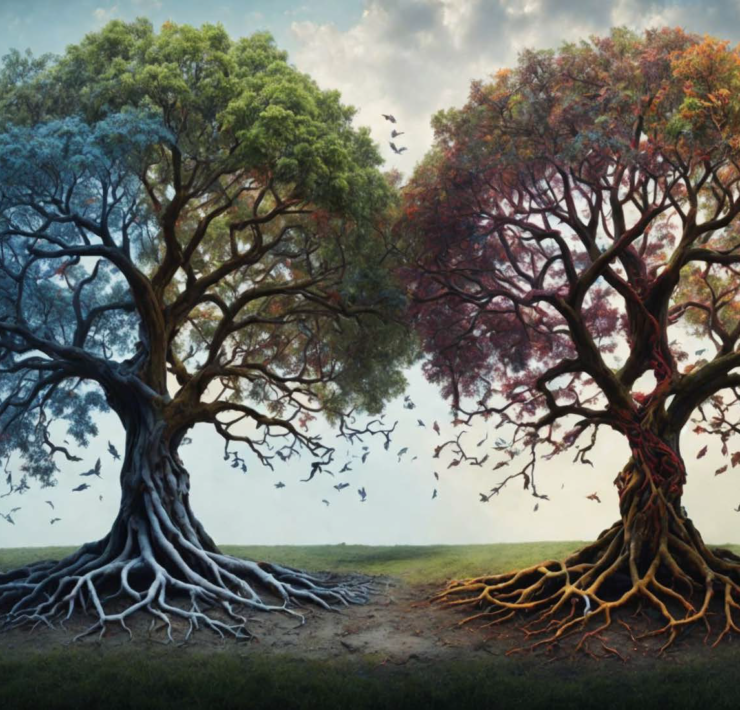


Now. Now. Now.